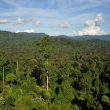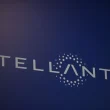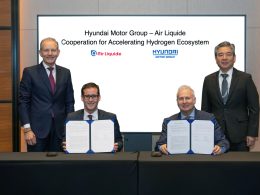British oil giant BP has abandoned its target to cut oil and gas production by 2030, as CEO Murray Auchincloss shifts the company’s focus towards increasing output and regaining investor confidence, according to three sources with knowledge of the situation.
Initially unveiled in 2020, BP’s strategy was among the most ambitious in the energy sector, aiming for a 40% reduction in production while ramping up investments in renewables. However, by February 2023, this target was scaled back to a 25% reduction, leaving BP to produce around 2 million barrels per day by the end of the decade, as investor pressure for near-term returns outweighed the push for a transition to cleaner energy.
Auchincloss, who assumed the CEO role in January, has faced challenges with BP’s share price underperforming compared to its competitors. The 54-year-old Canadian, formerly BP’s CFO, has sought to distance himself from the legacy of his predecessor Bernard Looney, focusing more on boosting profits from oil and gas. While BP maintains its long-term goal of achieving net zero emissions by 2050, Auchincloss is steering the company toward a simpler, higher-value strategy, including new investments aimed at increasing production in the Middle East and Gulf of Mexico.
BP is set to unveil its revised strategy, including the formal removal of the 2030 production reduction target, at an investor event in February. However, sources indicate that the target has already been quietly dropped. Competitor Shell has similarly scaled back its energy transition plans since its new CEO, Wael Sawan, took over, attributing the shift to rising costs and energy security concerns following Russia’s invasion of Ukraine in 2022.
In recent months, BP has invested billions in low-carbon ventures, but some renewable projects have been put on hold due to supply chain challenges and rising costs. The company is now exploring several new projects in Iraq and Kuwait while also considering expanding its U.S. operations in the Permian shale basin.
As of 0912 GMT, BP’s shares rose by 0.8%. Since 2020, BP has funneled substantial capital into low-carbon businesses and sharply reduced its oil and gas exploration workforce. However, the profitability of renewable projects has faced mounting pressure from supply chain bottlenecks and rising interest rates. A company insider noted that, while competitors continued to invest in oil and gas, BP had largely neglected exploration efforts in recent years.
BP is in discussions to invest in three new projects in Iraq, including one in the Majnoon oilfield, sources said. The company already holds a 50% stake in a joint venture that operates the vast Rumaila oilfield in southern Iraq, where BP has had a presence for a century. In August, BP reached an agreement with the Iraqi government to explore and develop the Kirkuk oilfield in the north, which also involves building power plants and adding solar capacity. Unlike previous contracts that offered foreign firms thin profit margins, these new agreements are expected to feature more lucrative profit-sharing terms, according to sources.
Additionally, BP is contemplating investing in the redevelopment of oilfields in Kuwait.
In the Gulf of Mexico, BP has confirmed plans to move forward with the development of the large and complex Kaskida reservoir and is also preparing to approve the development of the Tiber field. The company is also considering acquiring assets in the Permian shale basin, a prolific area for oil production, to bolster its US onshore business. Since BP acquired the Permian assets in 2019, they have added more than 2 billion barrels in reserves, sources said.
Auchincloss, who announced a $2 billion cost-cutting initiative in May aimed at being achieved by the end of 2026, has recently paused investments in new offshore wind and biofuel projects and scaled back BP’s low-carbon hydrogen projects from 30 to 10.
Nevertheless, BP has continued to expand its renewable energy portfolio, acquiring the remaining 50% stake in its solar joint venture, Lightsource BP, and securing a 50% share in its Brazilian biofuel partnership with Bunge.





















